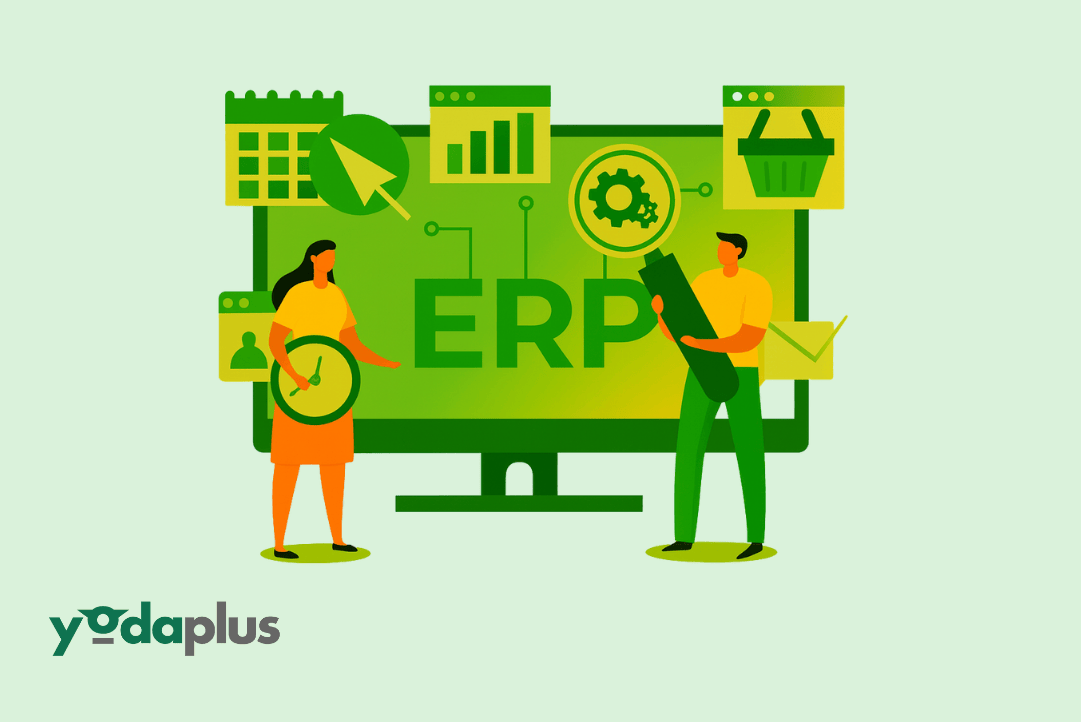
ERP Customization vs. Off-the-Shelf for Retail Supply Chains
September 22, 2025 By Yodaplus
The retail and supply chain industry has been transformed by retail supply chain digitization. Businesses are no longer relying only on manual processes and basic systems. Instead, they are using retail supply chain software to manage inventory, streamline workflows, and connect their logistics networks. For many organizations, the question is not whether to invest in ERP but whether to choose an off-the-shelf solution or to customize one to fit unique needs. Both approaches have advantages and risks, and the right choice depends on your processes, growth goals, and the level of flexibility you need in supply chain management.
The Case for Off-the-Shelf ERP
Off-the-shelf ERP platforms come ready with modules for finance, HR, and retail supply chain management. They are designed to meet common business requirements and allow companies to quickly adopt digital practices.
Benefits:
-
Faster implementation: These solutions can be deployed in weeks, reducing downtime for retail logistics supply chain operations.
-
Lower upfront cost: Licensing and subscription fees are predictable.
-
Industry best practices: Many providers build in proven processes for retail industry supply chain solutions and technology supply chain workflows.
-
Updates and support: Vendors frequently release upgrades, keeping your ERP aligned with compliance and new trends.
Limitations:
-
Limited flexibility for retail supply chain automation software.
-
May not support specialized workflows in retail supply chain services or autonomous supply chain strategies.
-
Integration with advanced AI agents in supply chain or emerging technology supply chain systems may require additional customization.
When Customization Makes Sense
Custom ERP solutions are tailored to your business processes. They go beyond generic features, addressing unique needs in supply chain and retail.
Benefits:
-
Fit for purpose: Companies with complex retail and supply chain operations can build features that match workflows exactly.
-
Scalability: A customized ERP grows with your business, handling expansion into new markets or integration with innovative tools like ai agents in supply chain.
-
Competitive advantage: By embedding unique capabilities into your ERP, you can create differentiation in retail supply chain management and customer service.
Challenges:
-
Higher cost: Customization requires investment in development and testing.
-
Longer implementation: It may take months before the system is ready.
-
Maintenance: Ongoing support and updates are your responsibility unless you work with a dedicated partner.
Balancing Retail and Supply Chain Needs
Deciding between off-the-shelf and custom ERP comes down to how complex your retail supply chain software requirements are.
-
If you are a mid-sized retailer focusing on standard retail logistics supply chain workflows, an off-the-shelf ERP can cover most needs.
-
If your organization is investing in retail supply chain automation software, autonomous supply chain operations, or AI-powered retail industry supply chain solutions, customization may be the smarter choice.
-
For companies scaling quickly, a hybrid model is possible: start with an off-the-shelf ERP, then customize specific modules for supply chain and retail innovations.
The Role of Emerging Technologies
Modern ERP platforms increasingly integrate with artificial intelligence solutions. Features like predictive analytics, AI-powered automation, and intelligent agents are shaping how supply chain management adapts to market changes.
-
AI agents in supply chain can optimize demand forecasting, inventory planning, and shipping routes.
-
Retail supply chain digitization tools allow real-time tracking and monitoring across distribution networks.
-
Retail supply chain services supported by automation cut down manual errors, improve transparency, and drive efficiency.
This means your decision about ERP is not just about cost or flexibility, but about readiness to embrace innovation in technology supply chain systems.
Key Questions Before Deciding
Before choosing customization or off-the-shelf ERP, ask:
-
How unique are your retail supply chain management workflows?
-
Do you rely on advanced retail industry supply chain solutions like predictive analytics or autonomous supply chain tools?
-
How quickly do you need deployment to support ongoing retail supply chain digitization?
-
What level of integration is needed with existing retail supply chain software and retail logistics supply chain systems?
Conclusion
The decision between customizing ERP and using off-the-shelf is about balancing flexibility, cost, and speed. Retail supply chain digitization requires robust systems, and both approaches can support this transformation.
For companies with straightforward supply chain and retail needs, off-the-shelf ERP works well. For those aiming at long-term growth with retail supply chain automation software and ai agents in supply chain, customization delivers greater value.
Ultimately, the best choice is one that aligns your ERP strategy with your broader vision for retail supply chain management and digital transformation. At Yodaplus Supply Chain and Retail Solutions, we help businesses build tailored ERP systems that combine flexibility and innovation, ensuring operations are ready for the next phase of growth.